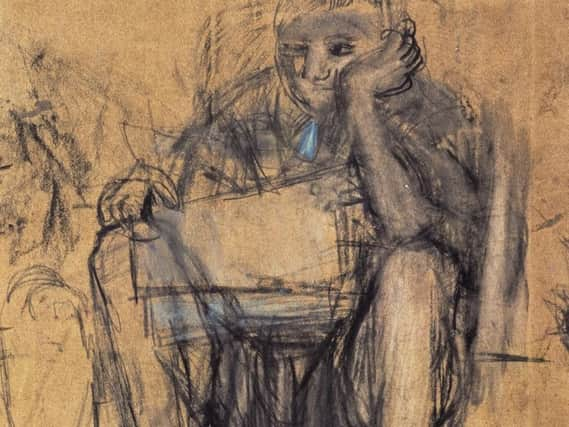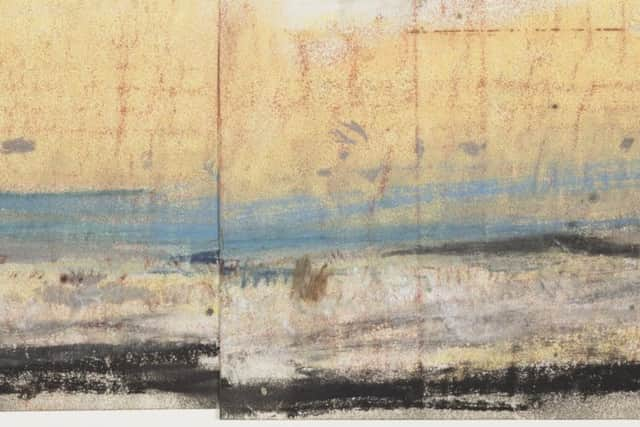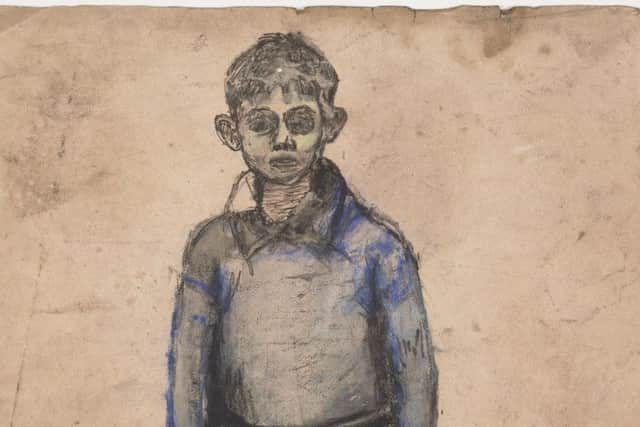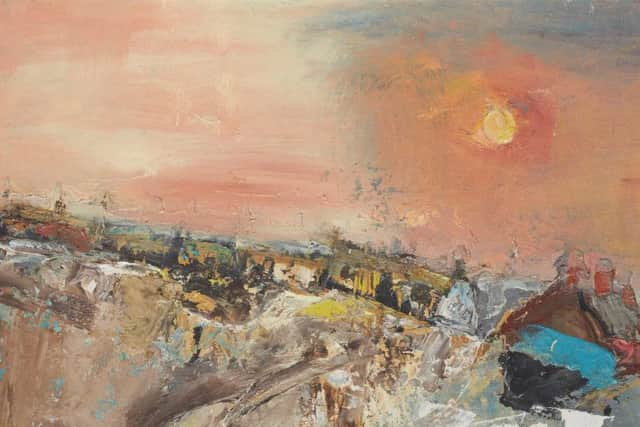Unseen Joan Eardley works revealed in new exhibition


The pastel and chalk drawings were created by Joan Eardley at her studios in Glasgow and Aberdeenshire in the 1950s and 1960s.
Three decades after they were donated to the Scottish National Gallery of Modern Art as part of a vast personal archive donated by her family they are finally seeing the light of day.
Advertisement
Hide AdAdvertisement
Hide AdDepicting scenes of the children playing outside tenements in the Townhead area of Glasgow and the fishing village of Catterline, they are said to demonstrate the transition of Eardley’s work, “from initial conception to the finished article.”


The material - described as “unpublished and largely unknown” by gallery chiefs - is going on display along with little-seen loans from private collections around the world.
Experts say the exhibition will allow visitors an “unprecedented opportunity” to trace the career of Eardley, whose career lasted just 15 years, but left a lasting impact.
Born in Sussex in 1921, Eardley moved to Glasgow in 1940 and studied at the city’s art school, but died of breast cancer when she was just 43.
Advertisement
Hide AdAdvertisement
Hide AdShe is best known for her paintings of the Samsons, a family of 12 children, who lived near her studio, who are captured in many of the works in the new exhibition.


It features detailed maps of both Townhead and Catterline, while research carried out for the show has allowed the gallery to pinpoint the exact locations of Eardley’s work.
Eardley’s work is said to be the most requested of any artist in the collection of the gallery of modern art.
Director Simon Groom said: “The material we are presenting for the very first time is staggering. There are literally thousands of sketches, drawings and photographs in this archive. She used these really innocent, unobserved, unobtrusive photographs of children playing to create these amazing images for which she became so well known.
Advertisement
Hide AdAdvertisement
Hide Ad“Rather than just use one piece of paper for her pastel sketches, she would often draw across maybe three or four as a kind of collage. We’ve got them in the way they were put together. We think the exhibition will come as a revelation.”


Patrick Elliott, curator of the exhibition, said: “We have tried to recreate Eardley’s working process, to show how she made the work, from sketch to finished painting, and attempted to track her movements as precisely as possible: in many of the Catterline paintings, you can say exactly where she was standing, almost down to the nearest inch.
“Visitors to the exhibition will, as it were, be looking over her shoulder, in what will be the most detailed and personal insight into Eardley’s life and art to date”.
The new exhibition, Joan Eardley: A Sense of Place, is at the Scottish National Gallery of Modern Art from Saturday until 21 May.